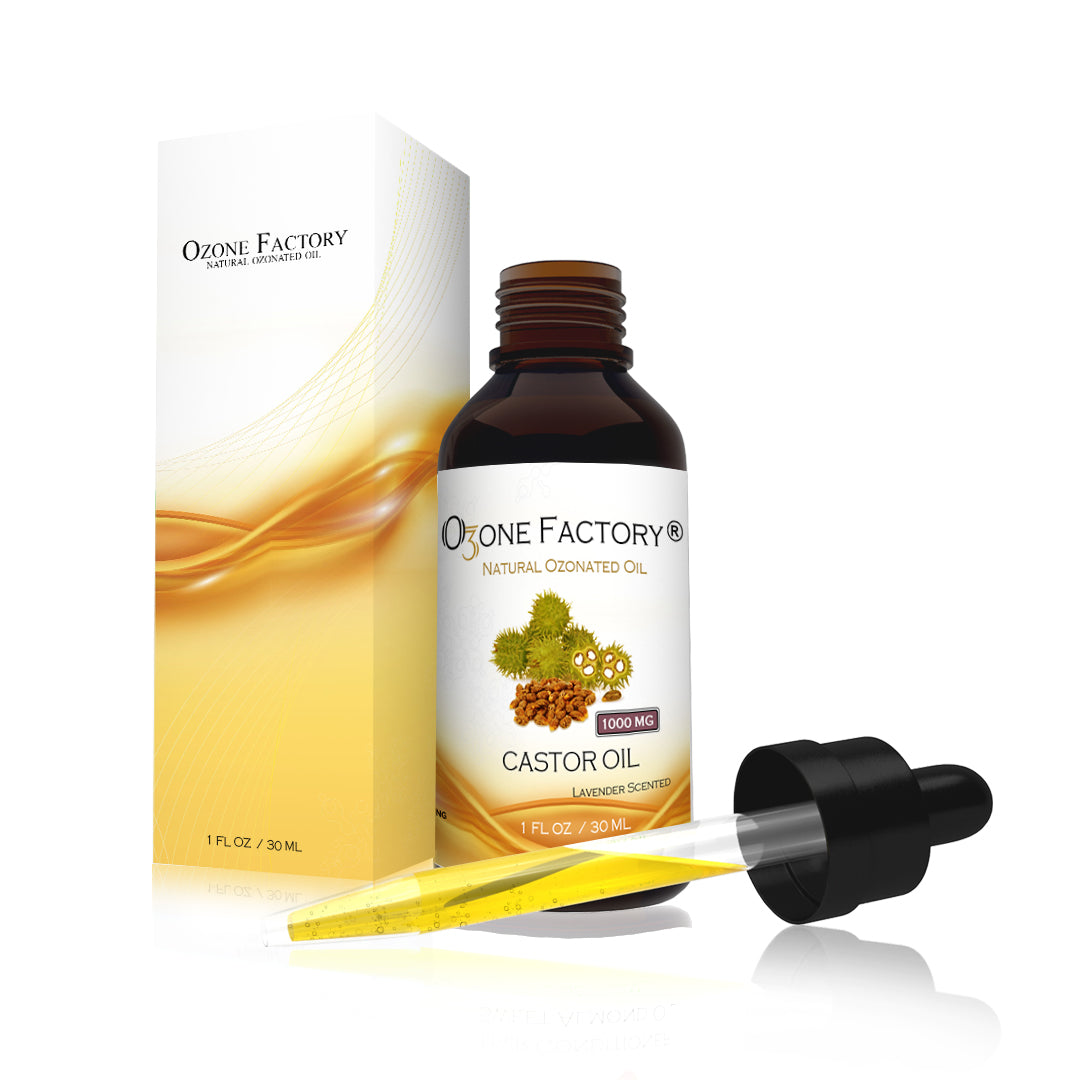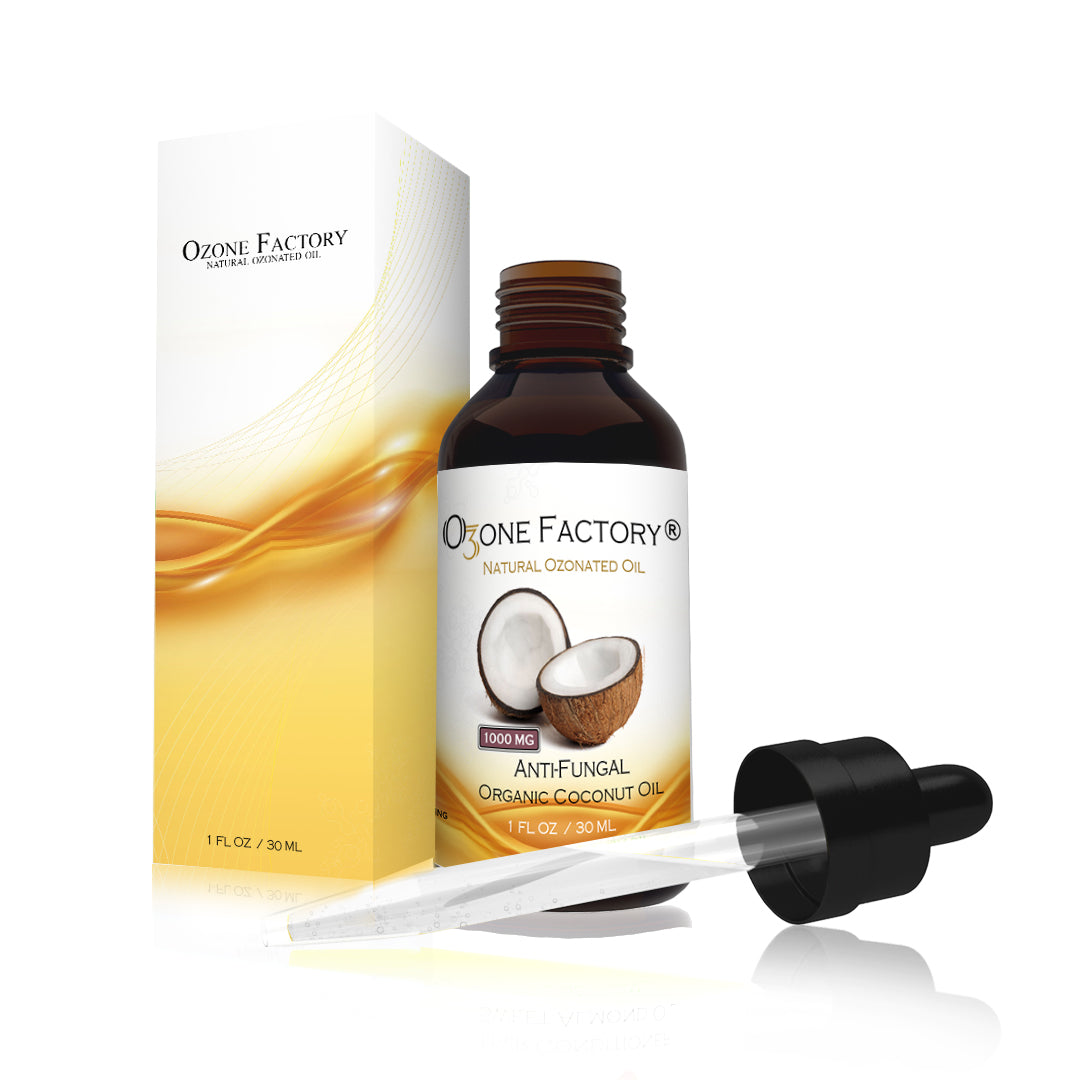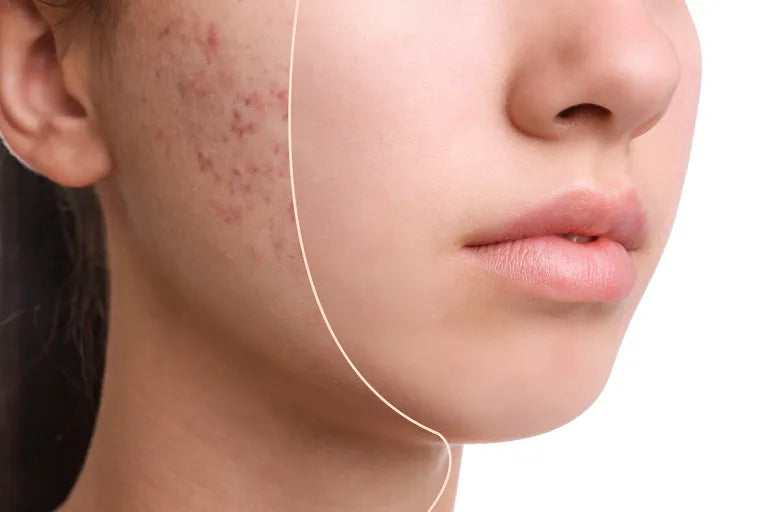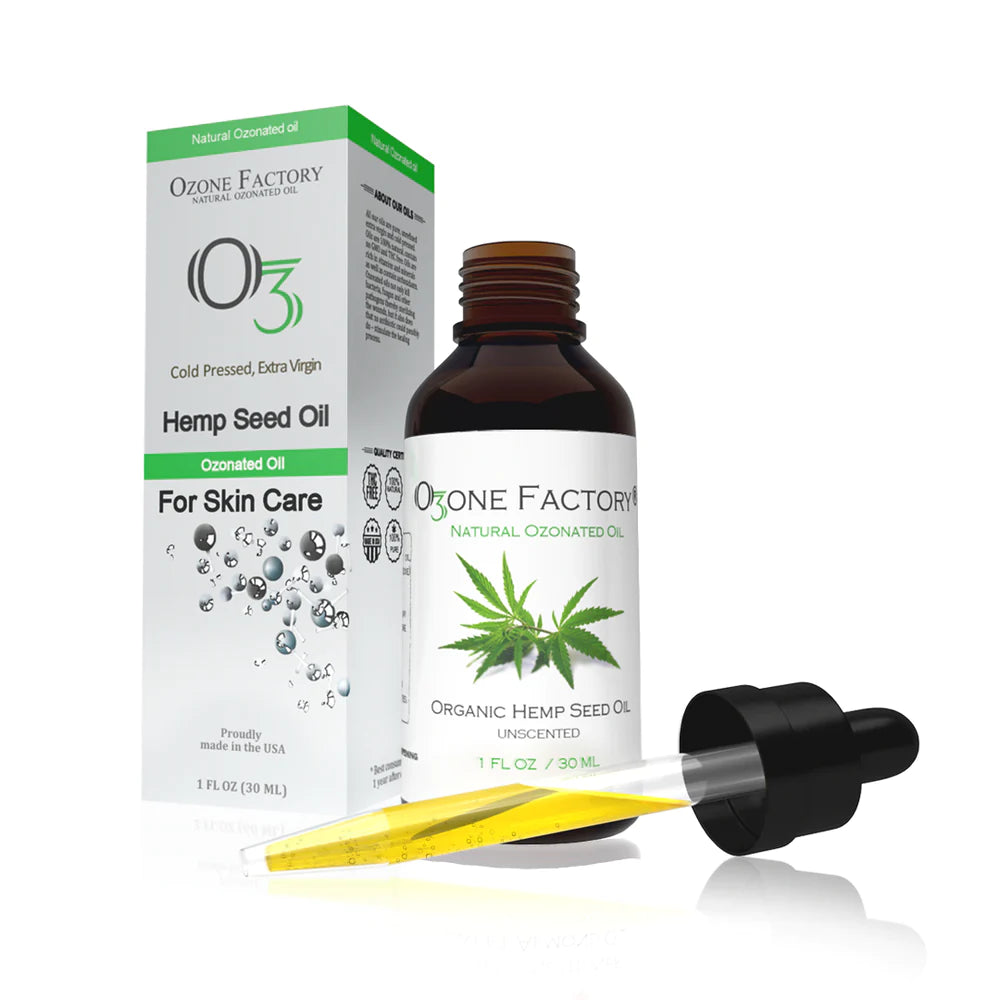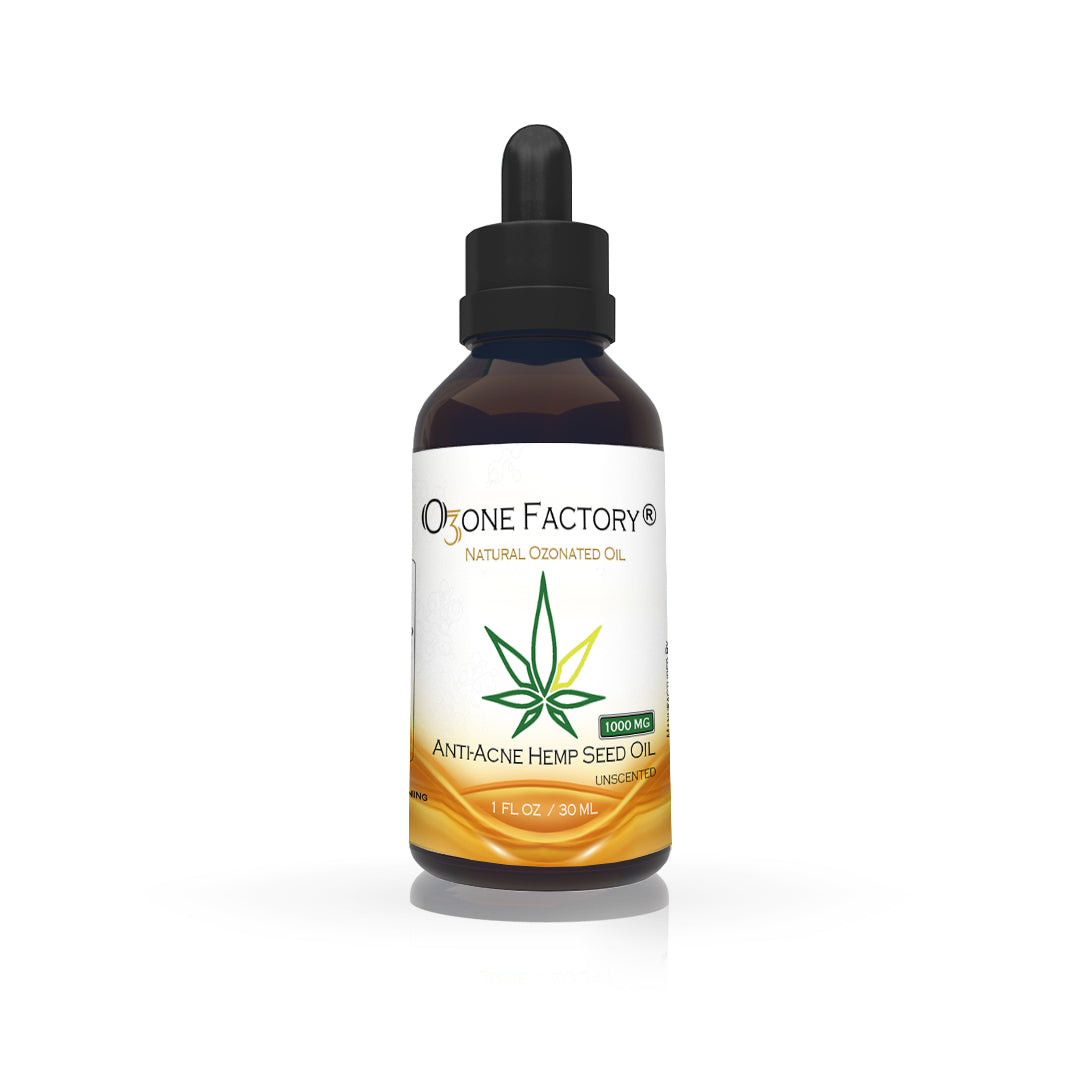
Summers can be especially harsh for your skin since it remain directly exposed to the scorching heat, dusty winds, and excessive solar radiation that characterize this season. This hot and humid weather is ripe for a lot of sweating, sunburns, and bug bites.
Coconut oil is a healing potion that is replete with a variety of nutrients and bioactive compounds, which accord it significant antioxidant, antifungal, antibacterial, and anti-inflammatory properties. All these properties can go a long way in treating your skin issues during the summer.

Benefits of Ozonated Coconut Oil on Skin
Here’s how coconut oil can help in banishing your skin problems during the hot season.
1. Heals sunburnt skin
Sunburn, as the name suggests, occurs when your skin is burnt due to excessive or prolonged exposure to the UV rays of the sun or other artificial sources such as tanning beds. UV radiation can penetrate deep into the skin to cause a lot of oxidative damage down to the cellular level.
Your skin has a mechanism to block out these harmful rays in the form of melanin, which is a pigment compound that gives your skin its color. Melanin absorbs the UV rays to prevent them from reaching deep into the skin. This pigment is produced by specialized cells called melanocytes found in the skin.
When the UV rays fall on the skin, these melanocytes are stimulated to produce extra melanin to trap the incoming UV rays. But when you stay in the sun for too long or the sun is too strong, this natural protective response may fall short in countering the overwhelming UV exposure.
Fair-skinned people are naturally deficient in melanin and are therefore more vulnerable to this kind of UV damage.
How ozonated coconut oil helps:
Some of the common symptoms of sunburn include dry skin, peeling or flaking skin, itching (pruritus), and local reddening (erythema).
Ozonated coconut oil can help soothe all these symptoms to a certain degree. It is rich in fatty acids that are readily absorbed and trap moisture into the skin to keep it hydrated for prolonged periods. This moisturizing effect can alleviate the dry and peeling skin associated with sunburn.
Ozonated coconut oil works as a strong anti-inflammatory agent to bring down the redness, swelling, and irritation in and around your sunburnt skin. It can also help heal the burnt skin, especially when used in combination with an OTC topical ointment.
Ozonated coconut oil is known to stimulate local blood circulation and promote fibroblast cell synthesis. Fibroblast cells come together to form collagen, the main structural protein found in the skin. More collagen leads to faster skin repair.

2. Fights skin infections
Skin infections such as athlete’s foot are particularly prevalent during summer. As the heat rises, your sweat glands become overactive, causing excessive perspiration. This sweat mixes with the dirt, dead cells, sebum, and other airborne pollutants on your skin, eventually accumulating inside your pores or hair follicles.
The clogged pores and follicles then become breeding grounds for microbes that feed on the sebum and dead skin. Since microbes proliferate faster in warm, humid, and closed environments, your clogged pores and follicles usually become infected.
Excessive sweat can also disrupt the natural pH balance of your skin, making it more alkaline, which is also conducive to microbial overgrowth and resulting infections.
How ozonated coconut oil helps:
The high amount of lauric acid in coconut oil exhibits antibacterial, antiviral, antifungal, antiprotozoal properties that can protect you from a variety of skin infections. Ozonated coconut oil has also been found effective against bacterial strains that are resistant to normal antibiotics.
Moreover, coconut oil has shown significant antiseptic activity against acne-causing bacteria in much lower quantities than topical OTC benzoyl peroxide. Coconut oil can also be used for the treatment of fungal infections such as athlete’s foot.
3. Treats xerotic skin
The hot arid summer winds can strip the moisture from your skin, leaving it dry and irritated. Plus, excessive sweating can further dehydrate your body, especially if you don’t drink enough water to compensate for the fluid loss.
People find respite inside their air-conditioned homes, but indoor cooling systems also suck the humidity from the environment and add to the dryness. It is because of all these reasons that people with eczema often suffer flare-ups during summer.
How ozonated coconut oil helps:
The rich fatty acid content of ozonated coconut oil is responsible for its moisturizing properties. It contains a variety of them, including lauric acid, palmitic acid, caprylic acid, myristic acid, and stearic acid.
These fatty acids are lightweight and highly absorbent, allowing coconut oil to penetrate deep into the skin without making it too sticky. Once applied, the fat molecules in this oil hydrate the dry, flaky skin while also trapping moisture from the air to seal it into your skin.
Thus, ozonated coconut oil can serve as a safe, effective, and cost-effective lubricant for treating mild to moderate xerosis (dry skin). Moreover, this topical remedy has been shown useful in reducing the severity of atopic dermatitis and limiting UV-induced skin damage.

4. Helps treat poison ivy, oak, or sumac sting
Sightseeing, hitting pools and beaches, and strolling in gardens or parks are common pastimes during this season. These outdoor activities put you at an increased risk of coming in contact with toxic plants such as poison ivy, oak, or sumac, which can trigger an allergic skin reaction.
Touching the leaves, stems, and roots of these plants leads to tissue inflammation, which presents itself as a nasty skin rash that may be accompanied by small fluid-filled blisters and severe itching.
How ozonated coconut oil helps:
Research investigating the pharmacological benefits of ozonated coconut oil has revealed that it possesses compounds that can inhibit chronic inflammation via several mechanisms, such as by reducing granuloma formation and serum alkaline phosphatase activity that is associated with organ damage. This anti-inflammatory activity can help reduce the swelling, skin irritation, and itching associated with an allergic rash.
Plus, ozonated coconut oil is credited with moderate analgesic and antipyretic effects that can further relieve the pain and associated fever, respectively. This simple remedy can also help promote skin healing while reducing the risk of infection.
5. Helps with hives
Hives are skin rashes characterized by swollen bumps or welts that tend to be red, itchy, and even painful. This rash usually occurs as an allergic response to a variety of factors, including a bug bite, certain foods, and medication, stress, environmental irritants such as pollen, extreme heat, and excessive perspiration.
This allergic reaction triggers skin inflammation, which eventually takes the shape of a rash. It can appear anywhere on the body and usually subsides on its own, but it can be quite discomforting while it lasts.
How ozonated coconut oil helps:
Hives are marked by underlying skin inflammation which can be alleviated through a potent anti-inflammatory agent such as coconut oil. When used topically, the oil seeps deep into the affected skin to block the release of cytokines, proteins that are responsible for causing inflammation.
Ozonated coconut oil may also help prevent secondary infections on account of its antimicrobial properties.

6. Helps reduce heat rashes
The heat and humidity during summer induce the production of excessive sweat, which mixes with cellular debris, sebum, and dirt to clog your hair follicles. These follicles are connected to underlying sweat glands and serve as passages through which sweat is released onto the skin surface.
The warm, humid insides of the clogged follicle offer the perfect conditions for the growth of infection-causing microbes.
Even as this passage becomes blocked, the sweat glands continue producing more sweat, which keeps accumulating under the skin and seeps into the surrounding tissue. The sweat that is pushed back into the skin carries with it the germs flourishing inside the follicle, triggering inflammation in the affected tissues that may later turn into an infection.
The tissue inflammation can make your skin red, irritated, and itchy, often leading to the development of a bumpy rash known as the heat rash or prickly heat. If infected, the bumps usually turn pustular and may form an abscess.
How ozonated coconut oil helps:
Topical use of ozonated coconut oil can soothe heat rash on account of its anti-inflammatory properties. This oil can also prevent the rash from being infected due to its antimicrobial nature.
Ooznated coconut oil is a lightweight oil that quickly seeps into the skin to bring down the underlying inflammation and relieve the irritation, redness, and itching associated with it.


